A Close-up of a Space Camera
- By Maggie Masetti
- January 24, 2014
- Comments Off on A Close-up of a Space Camera
A co-worker told me that WFPC2 was sitting out, unconvered, over in our Integration & Test facility. It didn’t really register. We have models of Hubble instruments on display elsewhere at Goddard. But no, it’s the real thing. The actual Wide Field and Planetary Camera 2, which until a few years ago was on the Hubble Space Telescope taking gorgeous images of the universe.
Wait, the real thing? I scurried over to I&T right away to take a selfie with it.
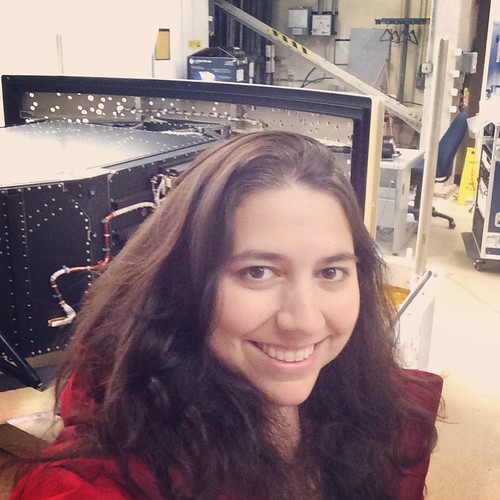
Credit: Maggie Masetti
Ok, here it is without me in it.
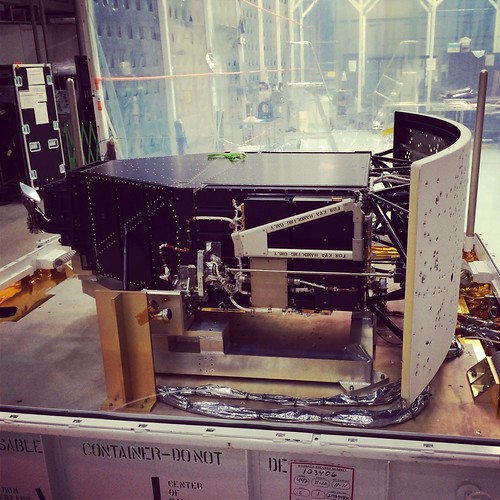
Credit: Maggie Masetti
Let me tell you a little more about the WFPC2 and why it’s so important and why it was so exciting to stand in front of it. Installed during the 1st Hubble Servicing Mission, it dramatically increased Hubble’s imaging power. Check out the dramatic difference between Wide Field and Planetary Camera and WFPC2. This is the M100 galaxy:
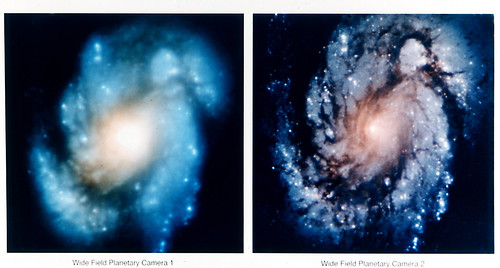
Credit: NASA
The images WFPC2 captured are some of the most famous and iconic Hubble images.
The Pillars of Creation in the Eagle Nebula? WFPC2.

Credit: NASA, Jeff Hester, and Paul Scowen (Arizona State University)
The Ring Nebula? WFPC2.
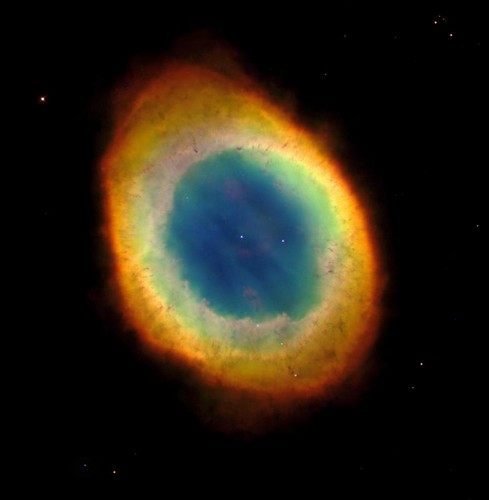
Credit: The Hubble Heritage Team (AURA/STScI/NASA)
Images of Jupiter after Comet Shoemaker-Levy impacted it? WFPC2.
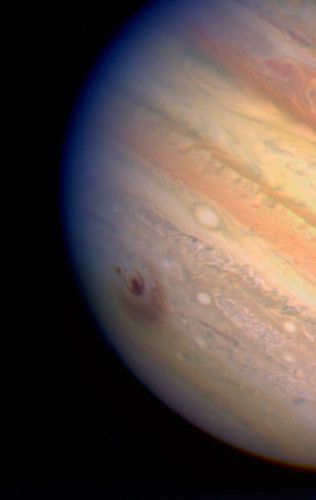
True colour image of the giant planet Jupiter reveals the impact sites of fragments ‘D’ and ‘G’ from Comet Shoemaker-Levy 9. Credit:H. Hammel, MIT and NASA/ESA
The first Hubble Deep Field? WFPC2. It was actually a pretty risky move to aim the Hubble at a seemly empty, tiny patch of sky – but the large numbers of young galaxies the Deep Field revealed was a landmark moment in astronomy.
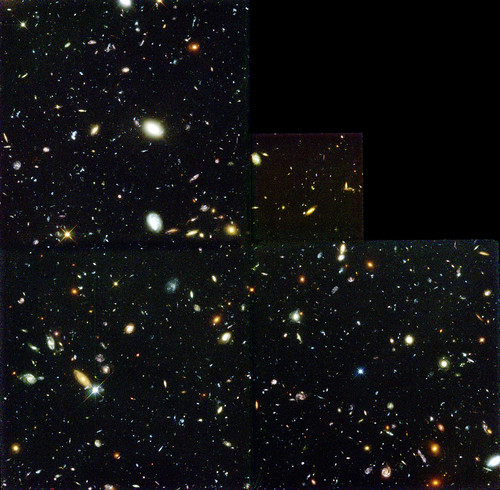
Credit: R. Williams (STScI), the Hubble Deep Field Team and NASA
The WFPC2 was removed from the Hubble during the 4th Hubble Servicing Mission and replaced with the Wide-Field Camera 3 (WFC3). It was during the removal of this instrument that astronaut Mike Massimino was forced to pull an errant handrail with stripped screws off of the Hubble!
This is the handrail in question. You can even seen where the stuck bolt slightly damaged the edge of the hole in the end. We were lucky enough to get to hold it when we worked on our First Light, Last Paycheck podcast.
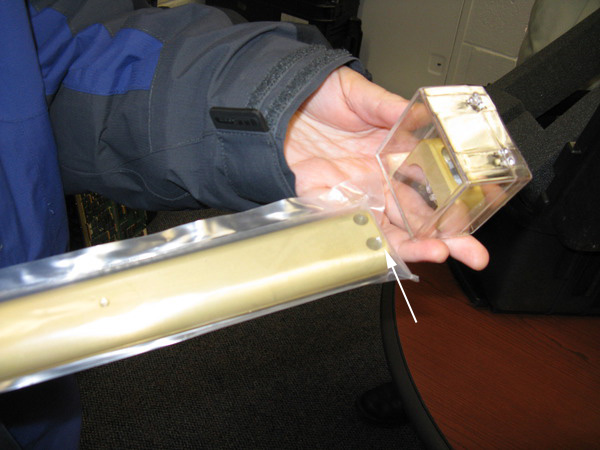
Here is a little video of the handrail being ripped off of Hubble!
Here is WFPC2 being removed from the Hubble:
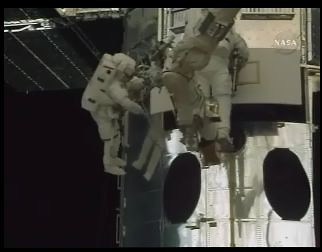
Credit: NASA
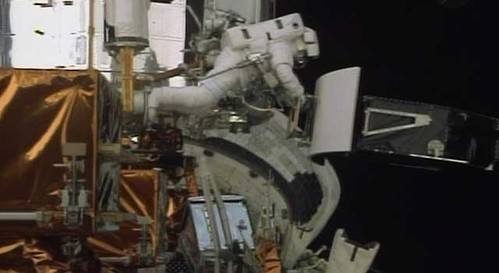
Credit: NASA
And here it is, sitting right in front of me. You can see the small pick-off mirror from this angle.
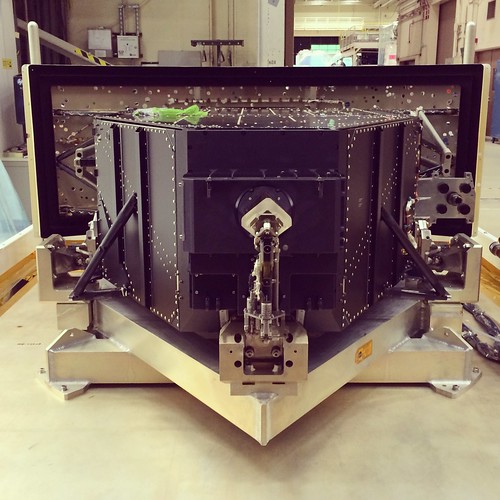
Credit: Maggie Masetti
This mirror used to reflect light from galaxies and stars! Now it’s in a selfie with me.
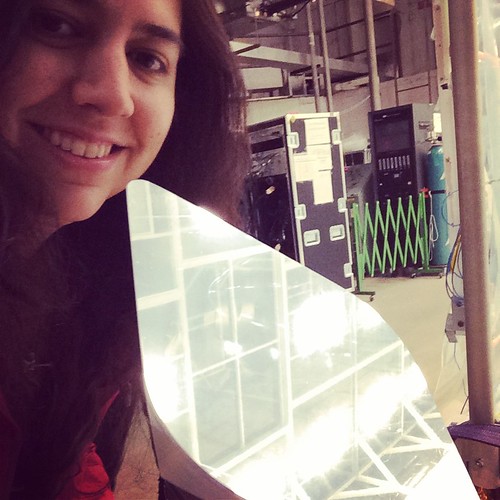
Credit: Maggie Masetti
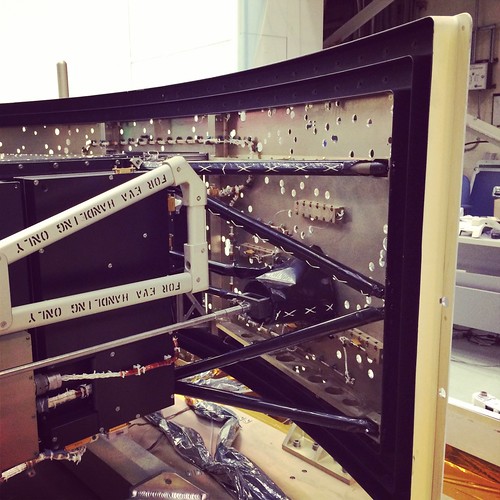
Credit: Maggie Masetti
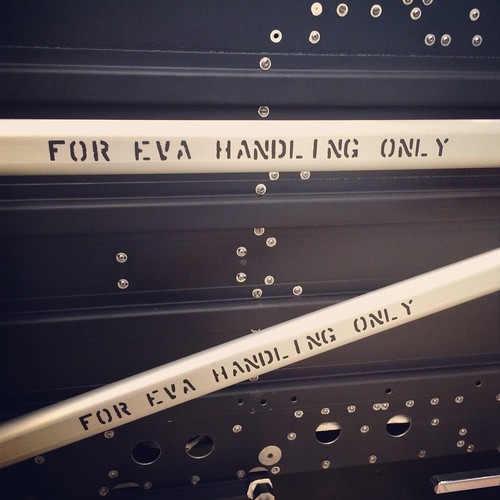
Credit: Maggie Masetti
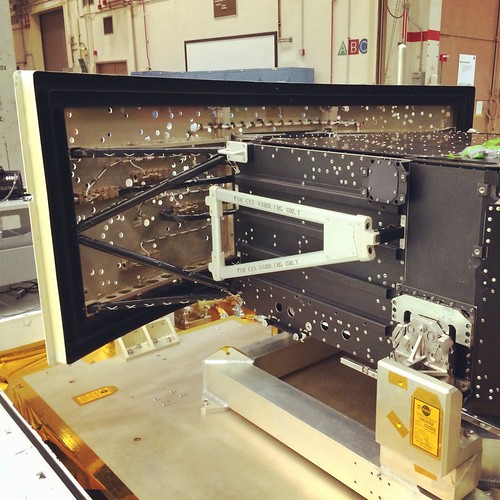
Credit: Maggie Masetti
So what are all these holes? They are places where there were micrometeorite impacts – they were cut out and sampled for further study.
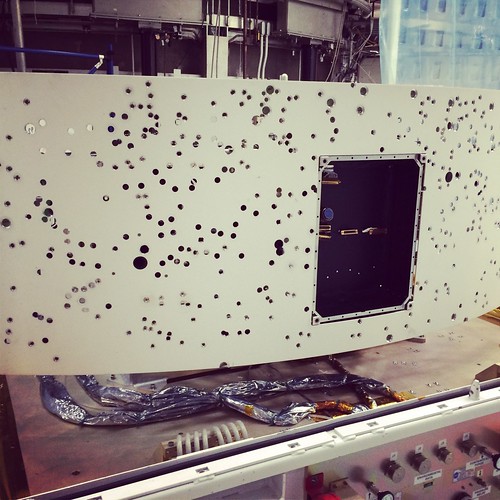
Credit: Maggie Masetti
Here’s some more reading about WFPC2:
- Hubblesite’s page on WFPC2
- An excellent five part article on “The Camera that Changed the Universe.” Part 1: The Universe, Part 2: Planets, Part 3: Galaxies, Part 4: Clusters of Galaxies, Part 5: Star Birth & Death.


